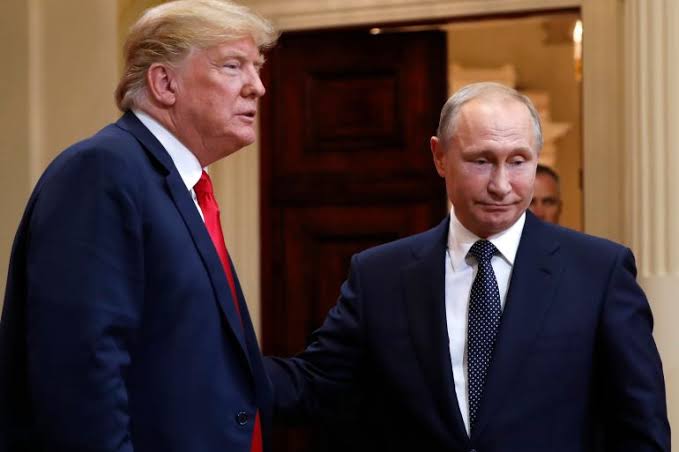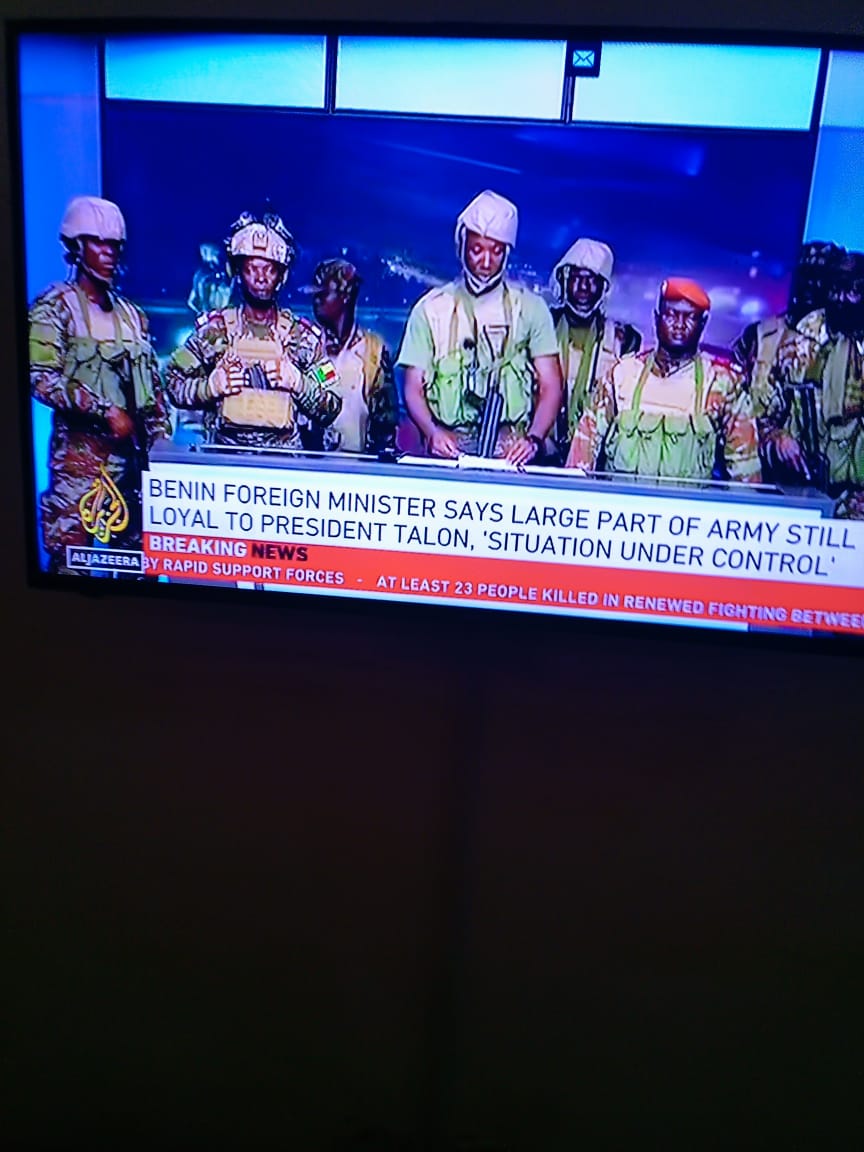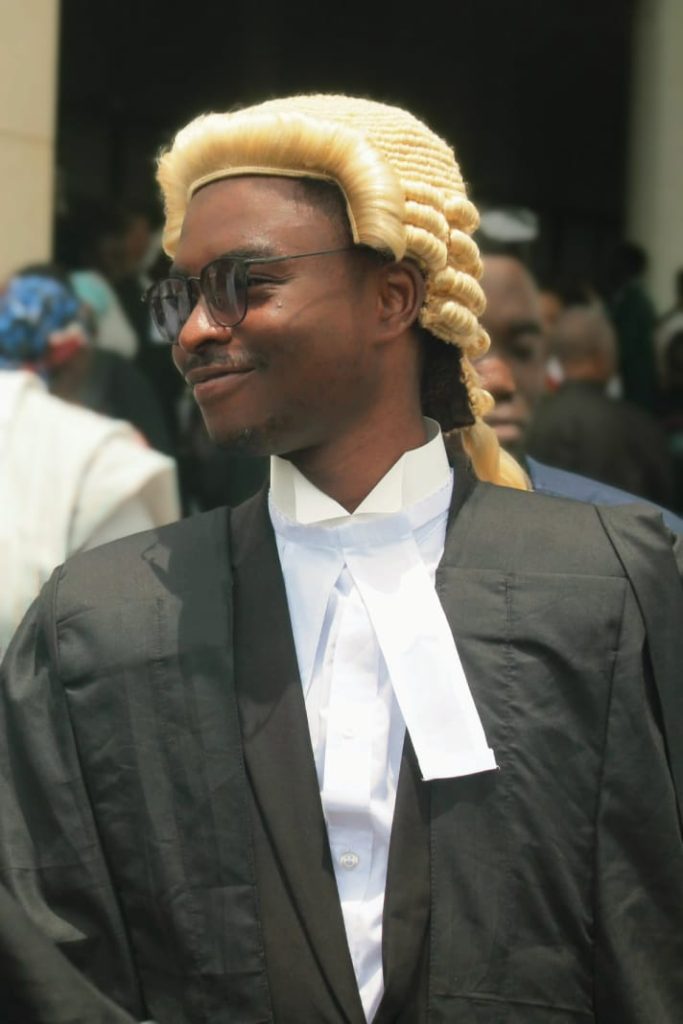Vanguard News
…Region faces tough choice over Tinubu, Jonathan, Atiku, Obi, Amaechi
Clifford Ndujihe, Politics Editor
THE North as a political bloc has a tough decision to make regarding who it will back in the 2027 presidential election, as no fewer than five politicians are on its radar for endorsement.
The five leading politicians hoping to get the nod of mainstream North, including incumbent President Bola Tinubu; former Vice President Atiku Abubakar; former President Goodluck Jonathan; former Anambra State Governor, Mr. Peter Obi; and former Rivers State Governor, Mr Rotimi Amaechi.
Although some northerners are considered to be eyeing the Aso Rock top seat, key stakeholders contend that a northerner succeeding President Tinubu will hurt the North-South power-rotation principle and create instability in the polity.
Northerners interested in the presidential seat in 2027 include former Vice President Atiku Abubakar and former Presidential Candidate, Mr Gbenga Olawepo-Hashim. The likes of former Kano State Governor, Senator Musa Kwakwanso and Bauchi State Governor, Senator Bala Mohammed, are potential aspirants.
However, to maintain stability in the polity, Vanguard gathered that some northern stakeholders, who are bent on stopping Tinubu, are shopping for a good Southern candidate who will serve a term and quit.
This understanding, Vanguard gathered, is behind the push for former President Goodluck Jonathan and the move is presenting tough nut for the northern bloc to crack, as there is no unanimity yet on who to support among four leading potential southern candidates.
The four candidates on the radar of many power brokers in the north are President Tinubu; former President Goodluck Jonathan; former Anambra State governor and 2023 presidential candidate of Labour Party, LP, Mr. Peter Obi; and former Rivers State governor, and Transportation Minister, Mr. Rotimi Amaechi.
Among the quartet, Tinubu and Jonathan cannot do more than four years. Obi and Amaechi can seek re-election in 2031 for a second term, if elected.
However, to maintain the power-rotation principle, Obi and Amaechi have pledged to do one term, a pledge that is still raising dust in the polity.
With some dismissing the one-term promise as rhetoric that could be discarded as witnessed among political leaders in the past, most of the power brokers resolved to go for certainty instead of uncertainty.
According to them, power must return to the north in 2031. The only way to guarantee that is ensuring that the next southern president does only four years. This leaves Tinubu and Jonathan as the two topmost options.
Tinubu
Against the plot of some politicians, especially from the north, President Tinubu prevailed in the All Progressives Congress, APC, presidential primaries and went on to win the 2023 poll, fending off a tough challenge from Atiku and Obi.
He polled 8.79 million votes; Atiku got 6.9million votes while Obi scored 6.1million votes. The courts ratified Tinubu’s election as declared by the Independent National Electoral Commission, INEC.
However, two years into his administration, the north is divided over the performance of the President. While some said he had done well and deserved to be handed another mandate, some northern leaders have accused President Tinubu of marginalising the north in terms of appointments, budgetary allocation, projects and infrastructural developments, and vowed to stop his re-election in in 2027.
Supporters of the president in the north, including governors, Secretary to the Government of the Federation, SGF, Senator George Akume; ministers and appointees, have pledged their support for Tinubu and outlined the things he had done for the north in two years, which they argued outweighed what late President Muhammadu Buhari did in eight years.
However, others, including Alhaji Atiku Abubakar, former Kaduna State governor, Malam Nasir el-Rufai; Senator Aminu Tambuwal, Governor Bala Mohammed insist otherwise, saying apart from marginalising the north, Tinubu’s reign had unleashed unbearable hardship and suffering on the citzenry of which northerners are worse off.
Of Tinubu’s 8.79 million votes in 2023, more than five million came from the north, with the north-west contributing over 70 per cent.
His aggrieved northern critics said his footprints in the north were not commensurate with their massive support, hence the need to look elsewhere in 2027 to halt the hardship.
In response to the North’s complaints, the Tinubu administration, last week held an engagement with northern citizens in Kaduna where government officials led by Akume and Isa Bagudu outlined the president’s achievements in the region while listening to their grievances. Going forward, Tinubu may align with former Kano Governor, Senator Musa Kwankwaso to get the support of a major block in the North-West.
Will Tinubu’s opponents beat his supporters in the battle for northern votes? Will Tinubu address the grievances of the north in the next 460 days before the February 20, 2027 presidential poll to swing the support of critical Northern mass to his side? These are some of the questions that will shape the outcome of the 2027 election.
Jonathan
Although, controversy is trailing his eligibility to run in 2027, following the 2018 constitution amendment that bars anyone that had been sworn-in twice from contesting the presidency, Vanguard gathered that Jonathan is gradually becoming the beautiful bride among some top northern power brokers, who see him as the best bet to defeat Tinubu in 2027.
Jonathan was vice to the late President Umaru Yar’Adua. Following the National Assembly’s Doctrine of Necessity, he was sworn-in to complete Yar’Adua’s term in 2010.
Thereafter, he contested in 2011, won and was sworn-in again. He sought a second term in 2015 and lost to late President Muhammadu Buhari, who ran on the card of the APC.
Buhari’s victory was the first time an opposition candidate was beating an incumbent president in the history of electioneering in Nigeria.
Those who worked against Jonathan in 2015 said, among others, that he should not have contested to allow power return to the north because after President Olusegun Obasanjo, a southerner ruled for eight years, Yar’Adua, a northerner, was in the saddle for two years.
So allowing Jonathan to continue till 2019 would mean power being in the south for 18 years out of 20 years of democratic rule. Besides, they said Jonathan was a signatory to the power rotation agreement in the PDP, which he reneged on.
However, given the “stop Tinubu” project, sources said Jonathan has emerged as a top contender within PDP, with many leaders declaring their readiness and willingness to give him the party’s ticket.
A source said apart from his performance as a leader, his concession of power to Buhari after the 2015 tight election, instead of dragging the nation through tension-soaked litigation like most presidential candidates had been doing since 1999, earned him a soft-spot in the hearts of many northerners.
This was one of the reasons he had cordial relations with Buhari after leaving power.
Faced with dearth of strong contenders, following the defection of Atiku to the coalition-backed African Democratic Congress, ADC, Vanguard gathered that many PDP top shots have signed into the “Bring back Jonathan” project, wooing him to accept to run.
PDP Deputy National Publicity Secretary, Ibrahim Abdullahi, confirmed the development, hinging the move to growing public nostalgia for Jonathan’s leadership style.
He said many Nigerians, including former critics, now agree that Nigeria had a more stable and democratic era under Jonathan.
“Even those who criticised him while in power are now admitting they were wrong. They’re asking for his forgiveness and urging him to return because they now recognise his values,” Abdullahi said.
He recalled and described Jonathan’s peaceful concession in 2015 as a defining moment of statesmanship.
“When he lost, he could have rigged the result in his favour, but he said no Nigerian’s blood was worth his ambition. That is the leadership Nigerians are yearning for—not just PDP members,” he said.
According to Abdullahi, some PDP top brass have met Jonathan to persuade him.
Vanguard gathered that a series of such meetings and consultations have been held abroad and Nigeria and more are afoot in the days ahead.
Obi, Amaechi
Obi, without “structure” as opposed to his opponents, ran a good race in 2023 and lost to Tinubu and Atiku.
Since the end of the election, Obi has remained visible in the polity, touring all parts of the country and carrying out philanthropic gestures.
Although he is still a member of the factionalised LP, he is one of the leading politicians promoting the ADC coalition.
Others with him in the coalition are Atiku, El-Rufai, Tambuwal, and Amaechi, fuelling speculations that their individual presidential ambitions might harm the coalition.
However, the quartet have dismissed the fears as unfounded, saying their goal is to rescue Nigeria from the iron-grip of Tinubu and APC and ensure good governance in the country.
They added that they would back any one of them that emerged as ADC’s flagbeaber.
While still on the coalition push, the PDP initiated moves to have Obi, who left the party in 2022 to return to the party, where he was vice presidential candidate to Atiku in 2019.
Obi confirmed the move and said he was open to discussions that would protect the interest of the country.
In the 2023 election, Obi won 11 states and the FCT. He won 10 southern states apart from Rivers. He also won a state in the north-central zone.
Last week, Professor Jerry Gana said with Obi as PDP presidential candidate, the party would win the North. However, this though appears to be changing with the upswinging push for Jonathan.
Amaechi as transportation minister, carried out many projects in the north, including the rail line from Nigeria to Maradi in Niger Republic. He also took a transport university to Daura and was honoured with a chieftancy title,
In the 2023 primaries of the APC, Amaechi came second to Tinubu and harvested his votes from many northern delegates.
Like Obi, Amaechi has promised to do a term if elected. With the latest push for Jonathan, it is to be seen if the core northern bloc will back Obi or Amaechi.
Atiku
Arguably Nigeria’s oldest presidential aspirant, who has been seeking the presidency since 1993, Atiku is one of the options before the North. He recently left the PDP for the ADC. He has also promised to do one term. If he picks the ticket, it will be his fourth time of being a presidential candidate dating back to 2007 (Action Congress, AC); 2019 (PDP); and 2023 (PDP). He sought the APC ticket in 2015 and lost to Buhari.
In the 2023 election, Atiku won his native North-East but lost North-West and North-Central to Tinubu. It is to be seen if he can rally votes from the North and make inroads in the South to land victory in his seventh attempt.









